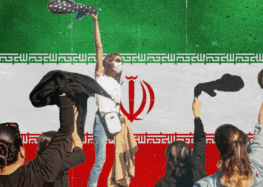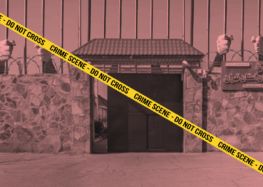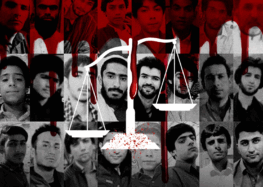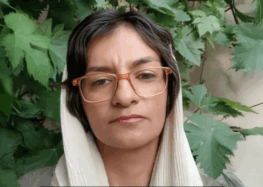Reliable Source Reports Group Executions Inside Mashad’s Vakil Abad Prison
An informed source told the International Campaign for Human Rights in Iran that over the past few months, Iranian judicial authorities have ordered the hanging of over one hundred individuals inside Mashad’s Vakil Abad Prison. According to this source, most of those executed were sentenced based on drug-related charges and the executions continue. ” On August 18, last Wednesday, 68 people were hung and over the coming weeks the executions with continue,” said the source.
The source stated that the number of individuals on the death row inside Vakil Abad Prison’s Wards 101, 102, 103, and 104 as well as the Quarantine Ward is “in the hundreds.” The Campaign refrains from publishing the reported statistics pending confirmation from other sources. The Campaign asks the Iranian judicial authorities to be accountable regarding news about the weekly group executions of drug-related convicts and to provide exact statistics about events taking place inside Mashad’s Vakil Abad Prison.
Sadegh Larijani recently wrote a letter to Iran’s Supreme Leader, Ayatollah Khamenei, asking him for directions about what to do with the convicts, the source told the International Campaign for Human Rights in Iran.
In order to verify the accuracy of the reports about the executions of drug-related criminals in Mashad, we asked Ahmad Ghabel, a theological researcher and a student of the late Ayatollah Hossein Ali Montazeri. Ghabel was arrested immediately after Mr. Montazeri’s death on 20 December 2009, and served 170 days in prison before he was released on bail. The Campaign asked Mr. Ghabel whether he was aware of similar executions during his imprisonment at Vakil Abad Prison. “I never saw any of these prisoners up close. I never tried to see outside my cell through the door or the window, but I heard the news. Soldiers are people just like you and me and they transfer news. I learned through news I received during fresh air breaks that 50 people were executed during the 170 days I was there,” said Ahmad Ghabel. He told the Campaign that although he doesn’t have direct information about the executions of individuals under the age of 18, he does remember hearing the prison guards talking about two youths under 18 among those executed.
“Inside our ward, Ward 6/1, in addition to cells where prisoners would serve their long prison terms, there were also suites where those on the death row would be brought a few hours before the execution. The situation would change so drastically, everyone would know a death-row inmate was inside the ward. All doors would close and if this was during the times when prisoners could make telephone calls, the lines would be disconnected. Even other prison authorities could not move about at this time, because Ward 6/1 was directly managed by the prison Intelligence Unit,” added the theological researcher.
“I have not conducted my own research on this, and I have been following the media news about it. Unfortunately, I have no access to my ex-cellmates, either. All I know is that the families of those executed read the number [of those executed] on the forms when they came to take the bodies. I think it is fair to say that these facts are undeniable. Prison guards and other prisoners are also members of the society and people like to talk about events like this, spreading the news. Especially as events like this are not unprecedented in our country,” said Ahmad Ghabel about news of 68 executions over the past few days.
The Campaign asked Ahmad Ghabel whether it is conceivable for such a large number of prisoners to have death sentences. “It is quite customary to have people with death sentences remain in prison for a long time,” Ghabel replied.
“People convicted of murder get the death penalty, but their families are given time to seek the forgiveness of the victims’ families and to attempt swapping the death penalty with diya [blood money]. Also, there are people who are sentenced to death because of carrying illegal arms, but they also have a prison sentence which they must serve prior to the execution. As we speak, there are hundreds of people inside prisons who received their death sentences several years ago. Even inside Ward 1/6 where I was serving, there was an individual who had been in prison for 13 years for illegally carrying. He had a death sentence, too. Another case is another suspect I was handcuffed to one time when returning from the court. His charge was possession of 70 kilograms of crystal meth and while serving a long prison term, he had also received a death sentence,” he added.
The source who provided the Campaign with detailed information about the group executions of Vakil Abad Prison said that the death row convicts are held inside Ward 6 of the prison which is under the oversight of the prison’s Intelligence Unit. Each month there are two sets of executions and in each set between 30 to 40 individuals are hung at once. “For example, between September 2009 and May 2010, almost 150 people were executed, but there was only one public announcement about the executions of five people on 3 April 2010. But on that date 35 people were executed, eight of whom were women,” said the source.
Other information received by the Campaign indicates that the frequency of mass executions has increased from twice per month to four during the recent month. Sources say total number of people executed is between 60 and 70. “There are hundreds of people on the death row inside Mashad’s Vakil Abad Prison,” another source said.
According to the said source, on the days when group executions are to take place, Vakil Abad Prison’s telephone lines are cut off. Ward 6/1 does not have public telephones and prisoners are only allowed short telephone calls once or twice per week.
The International Campaign for Human Rights in Iran expresses its deep concern about the ambiguous conditions and statistics of executions offered by various sources and their discrepancies with the numbers announced by officials. The Campaign demands accountability and clear information about the group executions inside Vakil Abad Prison and other prisons in the country.






